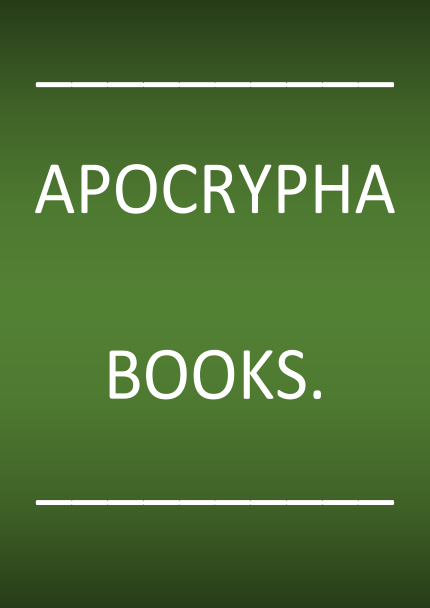Various writers

Apocrypha Books.
Various writters.
Understanding the Apocrypha: Readable, Informative, but Not Universally Accepted
The Apocrypha, a collection of ancient books, holds a unique position in biblical literature. While not universally accepted, these texts remain readable and informative for the church community, offering valuable insights. However, caution is advised when using them to prove the truths of the Bible.
The term “apocryphal” had been in use since the 5th century, but it was not until the publication of Luther’s Bible in 1534 that the Apocrypha was first published as a separate intertestamental section.
In the preface to the Apocrypha in the Geneva Bible, it was acknowledged that these books were not universally accepted as part of the biblical canon and did not hold the same weight as the other canonical books. However, they were still considered valuable for their historical and moral teachings.
During the English Civil War, the Westminster Confession of 1647 excluded the Apocrypha from the canon and made no recommendation for its inclusion above “other human writings.” This perspective was reflected in the decision of the British and Foreign Bible Society in the early 19th century not to print the Apocrypha.
The Apocrypha: A Second Canon
Often referred to as the “second canon,” the Apocrypha comprises books that are not part of the standard biblical canon. These texts are deemed readable for edification and historical context but are not accorded the same level of authority as the canonical books.
Learning from the Apocrypha
Despite their non-canonical status, the Apocrypha provides a window into historical and cultural aspects of the times. Many find them enriching for personal study and reflection, contributing to a deeper understanding of the biblical narrative.
Exercise Caution in Doctrinal Proof
It’s important to note that using the Apocrypha to substantiate doctrinal truths may be contentious. The majority of Christian denominations do not consider these books as foundational for establishing theological principles. Caution and discernment are encouraged when referencing them in discussions about biblical truths.
Valuable Insight with Discernment
The Apocrypha offers valuable insights and is deemed readable within the church community. While not universally accepted and not used to establish biblical truths, these texts can still contribute to a more comprehensive understanding of historical and cultural contexts. As with any biblical text, discernment is key when incorporating the Apocrypha into theological discussions.
The 14 Books in the Apocrypha:
1 Esdras
2 Esdras
Tobit
Judith
Esther
Wisdom of Solomon
Sirach
Baruch
Azariah
Susanna (Daniel 13)
Bel (Daniel 14)
Manasses
1 Maccabees
2 Maccabees